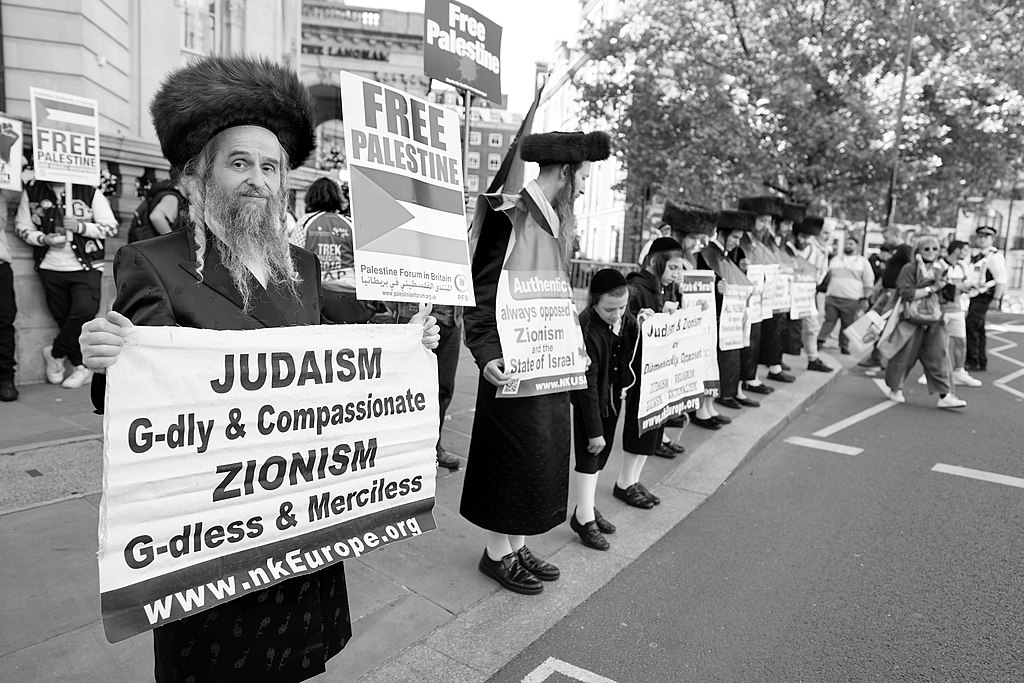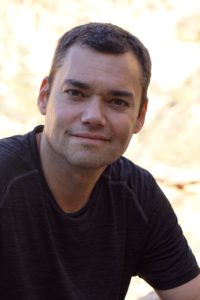Trump’s MAGA Shock Troops Have a Plan for Us: Fascism
Democracy itself is at stake in this election. If you choose not to vote, or you cast a vote for a 3rd-party candidate, you may never have the right to vote again. You’ve probably heard about the Heritage Foundation’s Project 2025—but have you looked at the details? Fasten your seatbelts—this one’s scary! Heritage’s president, Kevin Roberts, actually said it out loud: he’s attempting to conduct “the second American Revolution, which will remain bloodless if the left allows it to be…There are parts of the plan that we will not share with the Left: the executive orders, the rules and regulations.”
But what they did commit to paper is bad enough: an approximately 900-page blueprint for a fascist takeover of the US including an agency-by-agency roadmap for the first six months of a second Trump administration. Project 2025, written with input from somewhere between 85 and 100 senior Trump advisors and endorsed by J.D. Vance in his foreword to the main author’s book, will attack our freedom in many directions. Here are five of the awful things they are planning to do:
- Viciously attack immigrants with massive deportations and detentions that would be far, far worse than the criminal cruelty of Trump’s first administration (this link outlines all the immigration points I summarize below)
- Attack women’s reproductive rights, LGBTQ rights, and women’s equality—starting with banning abortion in all 50 states.
- Act as if the climate crisis doesn’t exist: wildly ramp up dirty energy sources like oil, coal and nuclear while destroying green energy programs. According to the Sierra Club, “Project 2025 is essentially a death sentence for federal climate and environmental protections.”
- Eliminate DEI (Diversity, Equity, and Inclusion) programs—and further enable Trump’s long history of open and blatant racism, from the 1970s right up to his recent race-based attacks on Kamala Harris, to be just the outward face of seriously cruel policies..
- Eliminate the right to vote for millions of people, through obscenely difficult registration procedures, reduction of polling places in areas that vote Democratic, and even bringing armed thugs to polling places to discourage voters of color—and, from all appearances, try to maintain power indefinitely. Trump even publicly told a so-called Christian Nationalist audience (if you look at what Christ said, they’re not Christians), “You got to get out and vote. In four years, you don’t have to vote again. We’ll have it fixed so good you’re not going to have to vote.”
Because this article is a project of Jewish Activists for Immigration Justice, let’s look more closely at the horror of Project 2025’s immigration proposals. You can find equally horrifying parts attacking civil rights, social equity, women’s reproductive freedom, the environment, and even education itself. According to the Niskanen Center, a centrist think-tank, Project 2025 would demolish legal immigration and make the US less safe while inflicting significant damage to the US economy
Specific policies within Project 2025 are a fascist’s dream and a progressive’s nightmare. To list just some proposals, it would:
- Choke off many types of legal immigration (even for survivors of crimes)
- Cut off federally funded student loans from up to 10.7 million US students at schools that grant in-state tuition to DACA recipients and undocumented students
- Ban most immigration from 13 countries that refuse to receive deported nationals
- Repeal ALL Temporary Protected Status (TPS) designations (putting about 700,000 long-term US residents at risk of deportation)
- Stop processing refugee immigration applications
- Eliminate work permits for many immigrants, denying them jobs and creating a burden on taxpayers
- Require immediate expulsion if Customs and Immigration Service denies an application, even for simple paperwork errors, and even for people with valid Green Cards
- Force state and local governments to provide driver’s license and other data to the feds—pretty much ending Sanctuary communities around the country
- Eliminate ALL privacy protection for those without documents, leading to risk of harassment by private vigilantes and deportation or incarceration by federal agencies
- Evict from public housing mixed-status families that include citizens or green card holders and people without documents
Immigration justice activists will also be badly hurt by non-immigration-related parts of both Project 2025 and Trump’s own hate-filled speeches such as how to handle dissent and dissenters.
“We pledge to you that we will root out the communists, Marxists, fascists and the radical left thugs that live like vermin within the confines of our country that lie and steal and cheat on elections…They’ll do anything, whether legally or illegally, to destroy America and to destroy the American Dream…the threat from outside forces is far less sinister, dangerous and grave than the threat from within. Our threat is from within…”
—Donald Trump, speaking at a rally in Claremont, NH, November 11, 2023
Note that the “vermin” wording is one of several times Trump has plagiarized from Adolf Hitler. That’s not a coincidence.
If Trump gets back into the White House, many progressives might have to organize from inside the walls of prisons and detention centers. Proposals to stop dissent from those who lean Democrat and other supposed “enemies” include:
- Invoke the Insurrection Act on the first day of a Trump presidency, enabling Trump to deploy the US military against peaceful civilian protests
- Attack “welfare recipients, lazy and liberal civil servants…anti-business regulators, environmentalists, and union bosses…scientists, woke bureaucrats, woke educators, woke diplomats, woke generals and admirals, woke G-men…” [G-men is an old term for federal agents]
- Attack Trump’s perceived enemies not only among Democrats (including Biden, Harris, and their families) and progressives but also Republicans who he sees as betraying him
Another deeply worrisome batch of proposals would centralize government power in the White House and eliminate even the weak protections against corporate greed that now exist: Project 2025 aims to:
- Move control of the Federal Communications Commission (which regulates TV, radio, telephone, etc.) and other public protection agencies directly under the White House while eliminating the Departments of Education and Commerce entirely
- Permanently eliminate career managers and replace them with political appointees loyal to Trump
Coupled with the recent Supreme Court Trump v. United States decision giving presidents they like unlimited powers to quash dissent, including even assassinating their enemies, we need to take these threats—and all the other threats wrapped up in Project 2025 and in Trump’s own words—VERY seriously.
And to those who voted “uncommitted” in the Democratic primary to protest Biden’s way-too-enabling response to Netanyahu’s massive crime in Gaza, let’s not forget that Trump has not only called for detaining/deporting Pro-Palestinian students and their allies but has told Israel to “finish the problem,” encouraging the Israelis to continue on the path toward genocide.
Sitting out this election or voting 3rd-party is not an option if you want to protect democracy and prevent fascism. Without ranked-choice voting, any vote other than for the Democratic nominee is a vote for Trump and his brand of fascism. Is Harris perfect? Certainly not. But elections in a two-party, winner-take-all election are not about getting the perfect candidate. They are about who we’d rather be organizing against or trying to impact!
Although on a number of key issues–especially immigration justice and the war in Gaza–Harris is far from where we want her to be, we activists across the country will have a much better chance to extract concessions from a Harris-Walz administration than from the fascist alternative. As Abraham Josephine Riesman wrote in Slate, progressives do influence the Biden administration: “They have, at times, responded to pressure from their left wing in Congress (the so-called Squad and others), as well as pressure from unions and advocacy campaigns…”
National partners in the immigration justice movement (led by those most directly impacted) confirm that progressive organizing campaigns have led to recent wins (e.g. TPS for Haitian asylum seekers, legal paths and freedom from deportation for undocumented spouses and children of US citizens). Currently the ACLU and immigration justice groups are suing the Biden administration for their new anti-asylum executive orders. Under a Biden-Harris or a Harris-Walz administration, these suits and advocacy efforts can move forward. We don’t know what repressive steps would be taken if MAGA were to win.
As we continue to fight to save lives in Gaza and on the US/Mexico border, we must be assured of the best environment possible to continue to influence legislators and the administration, speak up and speak out, and push the news media to take stands in favor of peace and justice. With Biden and Harris, we have been able to push for better policies and we have had some wins. We need to elect Harris and Walz so that radicals will not be hunted down as they were during the McCarthy era and so we can build our movements to be as large and inclusive as possible. This is a long-term fight, and electing Harris and Walz is just the first step.
In fact, we urge you to vote for Democrats for every contested office this time so that Harris and Walz can get things done without getting blocked by Congress, state legislatures, governors, and judges at every turn. The choice this time is clearer than it’s ever been.
Lifelong activist Shel Horowitz wrote this on behalf of Jewish Activists for Immigration Justice, which unanimously endorses it and ran an abridged version in its newsletter. An author, international speaker, TEDx Talker, and expert in turning business into a force for social justice and environmental healing, his award-winning 10th book is Guerrilla Marketing to Heal the World. Download excerpts from the book at http://goingbeyondsustainability.com Shel acknowledges Holly Bishop and D. Dina Friedman, whose significant edits made this piece stronger.


